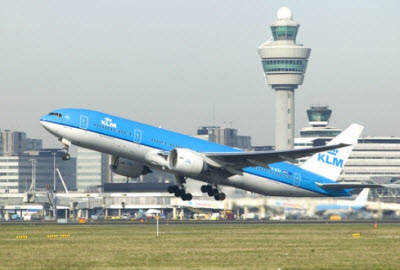US Airways Make Disabled Woman Wander Off BWI Airport
- Written by Roberto Castiglioni
 A woman with a mental disability wandered off Baltimore Washington airport following US Airways refusal to accommodate her needs.
A woman with a mental disability wandered off Baltimore Washington airport following US Airways refusal to accommodate her needs.
The case of Eileen Schofield, the woman who wandered off at BWI airport because US Airways refused to accommodate her needs is the latest reminder of the immense challenge mental conditions pose to the air travel industry.
Mrs Schofield is unable to read or write due to a developmental delay. The 53-year-old woman has been flying between Charlotte and Baltimore for several years. To best assist her, representatives of Air Tran would issue her escort a special access pass to safely take her to the boarding gate and vice-versa.
Following the merger of Air Tran with Southwest Eileen’s sister Charlyne switched from Air Tran to US Airways. The airline’s desk agent in Baltimore refused to issue a gate pass for Eileen’s escort, citing Federal regulations. Left unassisted after deplaning, Eileen Schofield wandered off BWI airport. She was found after several hours in a different Terminal building.
US Airways said that issuing gate passes is at the discretion of the airlines and TSA and reminded that passengers who are unable to comprehend or respond appropriately to safety instructions from its crew must travel with an assistant. Eileen Schofield cannot read or write but can comprehend and respond to cabin crew instructions in case of an emergency. Under the Air Carrier Access Act airlines must meet the needs of passengers with disabilities.
“We’re taking a closer look at this case and are always working to improve the experience for our disabled passengers,”  a spokesperson for US Airways said.
a spokesperson for US Airways said.
Failing to meet the needs of passengers with disabilities can have fatal consequences. 83-year-old dementia sufferer Victoria Kong wandered off Reagan National Airport in Washington DC in May 2013. The elderly, who did not look disoriented or in distress, wandered off the terminal building and into nearby woods. Her body was found three days later about 200 metres from the airport perimeter. Her relatives said the elderly probably died from the chilly weather.
Last May, the Dutch Civil Aviation Authority (ILT) issued a formal warning against KLM for breaching European anti-discrimination law, Regulation (EC) 1107/2006. The regulator found KLM responsible for not providing Schiphol airport correct information concerning the needs of a person with a mental disability.
 A developmental delay does not prevent 29-year-old Christine Wanjiku from traveling by air. However, because of her condition, Christine needs a little assistance when flying. Airports and airlines across Europe are equipped and trained to provide assistance to passengers like her.
A developmental delay does not prevent 29-year-old Christine Wanjiku from traveling by air. However, because of her condition, Christine needs a little assistance when flying. Airports and airlines across Europe are equipped and trained to provide assistance to passengers like her.
Airlines use special service request codes to ensure passengers receive the appropriate level of assistance. In Christine’s case, KLM used the wrong code. As a result, the young woman wandered off Amsterdam Schiphol airport for eight hours.
“It is very important that air carriers use the correct assistance codes in order to provide adequate assistance to their passengers,” Ruth Lopian, Policy Officer at the Passenger Rights Unit of the European Commission said. “It is true that in the case of KLM this lack of correct codes led to the repeated inadequate treatment of a passenger with a mental impairment.”
Reduced Mobility Rights presented a report on flying with mental conditions at the Passenger Terminal EXPO 2014 in Barcelona, reminding airports of the challenge these impairments pose to the air travel industry.
The report states that everyone in the air travel industry has a role to play in helping people with mental conditions like developmental delay and dementia. From the person at the check-in desk to cabin crew, people working throughout the aviation industry need to commit to learning more about these conditions.
Airlines and airports must take swift action to identify methods ensuring the correct input of information at the booking stage and procedures to safeguard the integrity of the transmission of information process so that assistance most suitable to the needs of the individual is delivered.
Getting the communication process right will prove crucial to prevent the repeat of cases like the one of Eileen Schofield and help ensure everyone has a smooth flight.










